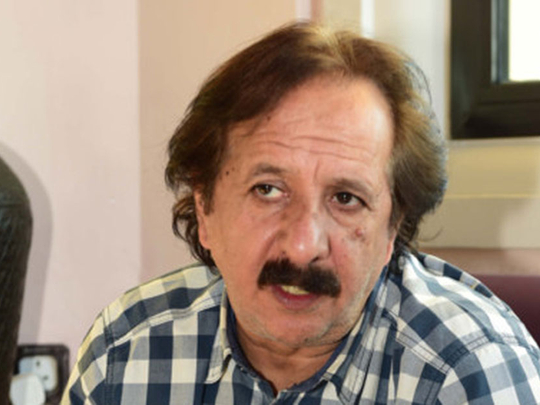
Iranian director Majid Majidi has gone out of his comfort zone with his first Indian-set feature, Beyond The Clouds. The Mumbai drama, which was screened to the public on the opening night of the 14th edition of Dubai International Film Festival on Wednesday, is a turbulent tale of two siblings from the slums of Mumbai and how systemic poverty cripples them in life.
Majidi may not hail from India but the director, whose credits include the Oscar-nominated Children Of Heaven, claims that he is familiar with the landscape and its people.
Beyond The Clouds is expected to release in the UAE cinemas in January next year.
Gulf News tabloid! spoke to him on the sidelines of Diff and with the help of a translator we managed to get his take on films, self-censorship and more …
What prompted you to make a film, Beyond The Clouds, set in an unknown land like India?
I knew Indian cinema through the late director Satyajit Ray. I was very young and I got interested in Indian cinema through his brand of films. I always believed that I wanted to make at least one film that highlighted the cultural commonalities between Iran and India. So when the opportunity for Beyond The Clouds came, I grabbed it. Plus, I knew a lot about India because I had travelled to India many times before the film.
How did you ensure that Beyond The Clouds, set against the backdrop of Mumbai slums, did not turn into poverty-porn? Filmmakers from outside of India tend to stereotype the people and their culture.
That’s a very good question. When I saw the movie Slumdog Millionaire, I thought the film had a touristy-look of India. That’s not its real look. Indians, even if poor, have their own identity and I knew I had to pay attention to their identity. I didn’t want to dwell into the stereotypes or the scenes that highlighted their poverty alone. Poor people can be honourable. What was important to me were their human values and not how they looked in society. Human values were the most important component.
Beyond The Clouds deals with sexual violence against women. Did you have any reservations while tackling the subject?
I did some research about it and I found that in India, the violence against women and children, is particularly high among the poor.
I found that women or children who are poor are especially vulnerable towards violation. That is one of the reasons why I chose to make this film and I wanted to show that because of poverty, women and children could be abused. Unfortunately, I have even witnessed the abuse personally in some of the small districts around Mumbai. Some women even prostitute themselves in front of their family and they have to do so because of their poverty. So I felt compelled to show it.
Indian cinema is going through a tough phase, with films such as Padmavati facing problems over its release. What is your take on repression of artists and their work?
Bollywood cinema is entertaining, but it is not the real life of people. You don’t see real life in Bollywood cinema. India is a country of multiple cultures, religions and languages and we have to respect them. What I have heard is that the film Padmavati caused anger among certain groups and it hurt their culture and religion, so there should be a certain respect given towards other religion and cultures by filmmakers. So maybe, it is better to maintain certain limits and not cross it.













